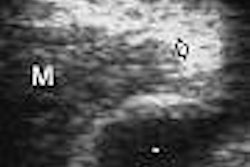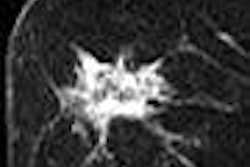SAN FRANCISCO - Several studies have shown that elderly patients experience short- and long-term cognitive decline after undergoing surgery. Researchers at Yale University performed a functional MRI (fMRI) experiment to see if anesthesia played any part in memory decline. They presented their results this week at the American Society of Anesthesiologists (ASA) meeting.
"Our long-term goal has been to look at the central nervous system effects of anesthesia on functional MRI," said lead author Dr. Ramachandran Ramani during a discussion of his group's poster presentation. Ramani is from the department of anesthesiology at the Yale University School of Medicine in New Haven, CT. His co-authors include Robert Todd Constable, Ph.D., director of the university's MR Imaging Research Center.
For this research, 15 healthy volunteers (ages 19-35) were enrolled. A standard protocol was followed for anesthesia, including NPO for eight hours, noninvasive blood pressure monitoring, and continuous monitoring with pulse oximetry, end-tidal CO2, and electrocardiogram. A mixture of sevoflurane and oxygen was administered through a face mask and circle absorber circuit. Ten minutes were allowed for the sevoflurane concentration to reach a steady state.
Two doses of anesthesia were used: 0.25 minimal alveolar concentration (MAC) and 0.5 MAC. These doses are one-quarter and one-half, respectively, the amount that is generally used in a clinical setting, Ramani told AuntMinnie.com. For the analysis, the following conditions were assessed:
- Awake versus 0.25 MAC
- Awake versus 0.5 MAC
- 0.25 MAC versus 0.5 MAC
Patients underwent blood oxygenation level-dependent (BOLD) fMRI on a 3-tesla scanner while performing memory activation tasks before and after receiving the anesthesia. The entire experiment took about three hours, Ramani said.
For memory activation, the subjects heard one-minute-long stories, repeated eight times, using headphones. After hearing the stories and recovering from the anesthesia, memory was evaluated using a recognition test that asked the subjects to identify items in the stories, as well as a free recall test. In the latter, the subjects were asked to recall as much as they could about the story.
According to the results, there was a significant drop in memory across the board, implying memory impairment under all conditions. In addition, memory stimulation caused a significant BOLD activation in the thalamus, which is the main site of sensory experience input, Ramani noted. Also, there was activation in the auditory cortex, which has some correlation with amnesia, he said.
"With 0.5 MAC sevoflurane, there is a significant decrease in BOLD in the thalamus and auditory cortex," the group wrote. "At this point, clinically all patients were asleep." Also, "with 0.5 sevoflurane, BOLD activity persists in the hippocampus -- in spite of significant memory impairment."
This last finding was a surprise, Ramani said, as his group had expected hippocampal activity to cease altogether rather then merely decline. They hypothesized that this reduction in the memory seat of the brain happens because of a loss of connectivity between the hippocampus and other areas of the brain.
Ramani stressed that this was an experiment and that more work needed to be done in a patient group, particularly an older one (age 65 and over). However, given the graying of the population, these initial results suggest that a lower dose of anesthesia would suffice in some patients, which would then lessen the cognitive impact.
In their poster, the researchers stated that their "long-term goal (is) to identify the (central nervous system) targets for the end points of anesthesia (amnesia, analgesia, narcosis, and reflex suppression) and understand the dose response relationship."
By Shalmali Pal
AuntMinnie.com staff writer
October 19, 2007
Related Reading
Functional MRI may detect early Alzheimer's disease, September 25, 2007
Forgetting may confer neural processing benefit, June 4, 2007
Study shows why exercise boosts brainpower, March 13, 2007
Want a better memory? Stop and smell the roses, March 9, 2007
Copyright © 2007 AuntMinnie.com



















